
Online marketing tricks that make you spend more
To increase their profits, online retailers often use marketing tricks and techniques to convince you to buy. Here are some of the most common.
If you’re not familiar with marketing techniques, the cliff notes are basically “ways to manipulate human nature to make people buy stuff.” These marketing tricks work pretty darn well, and they’ve worked on you. That $4.99 box of cereal looks a lot more attractive than the $5.15 one right next to it, doesn’t it? Thanks to the rapid growth of e-commerce, marketers have been developing new techniques specifically geared toward online shopping, and they’re just as effective. Currently, many of us are relying on e-commerce more than ever. To help you stick to your budget, we’ve rounded up some of the most popular to keep an eye out for.
The ticking clock
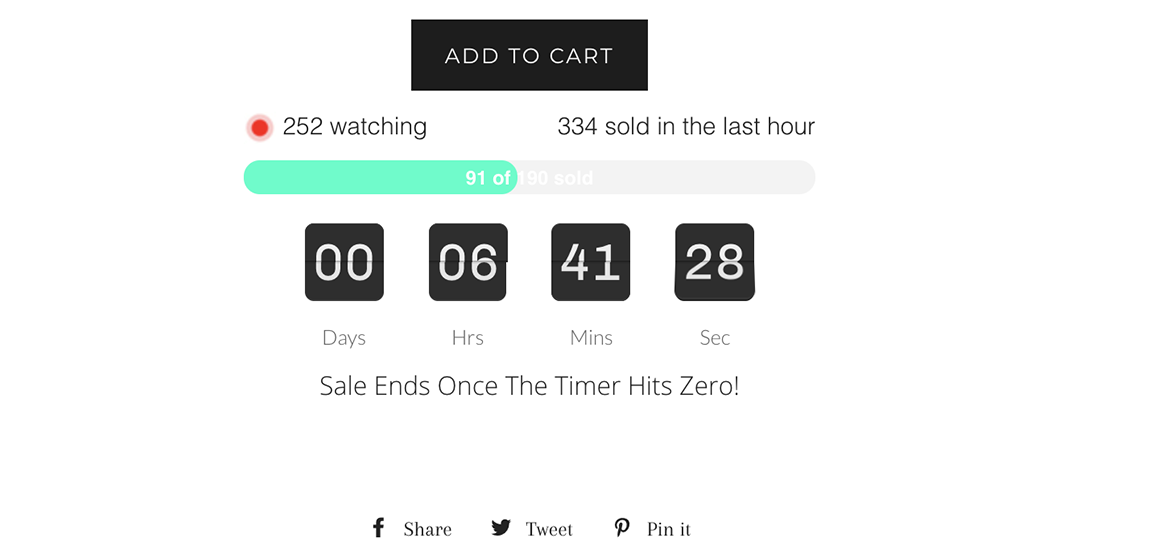
“Act now to claim this limited time offer!” the website implores you, while a countdown marches ominously backward from five minutes. Thing is, most of the time, these time limits are completely bogus. Marketers are counting on your desire to not miss out on a deal to push you into a quick purchase. On sites like Groupon, where the offer may last for a few days, the limit is more likely to be a real one. As for the high-pressure countdowns, you’re likely fine to keep comparison shopping and if needed, return to find the countdown has magically restarted.
The very, very last item
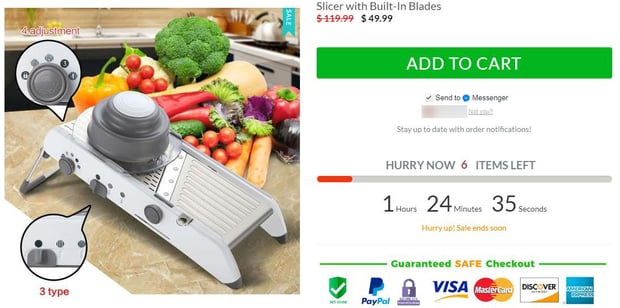
You’ve seen it on Amazon numerous times: “Only 2 left!” We’re not suggesting that Amazon is faking you out. But what retailers will do at times is enter lower inventory numbers than what they actually have. Then, as the count moves closer to zero, the artificially low inventory status will drive shoppers to buy before the item "runs out." Noticing a trend yet? This marketing trick masterfully takes advantage of potential FOMO: Fear Of Missing Out.
Free shipping–but not yet
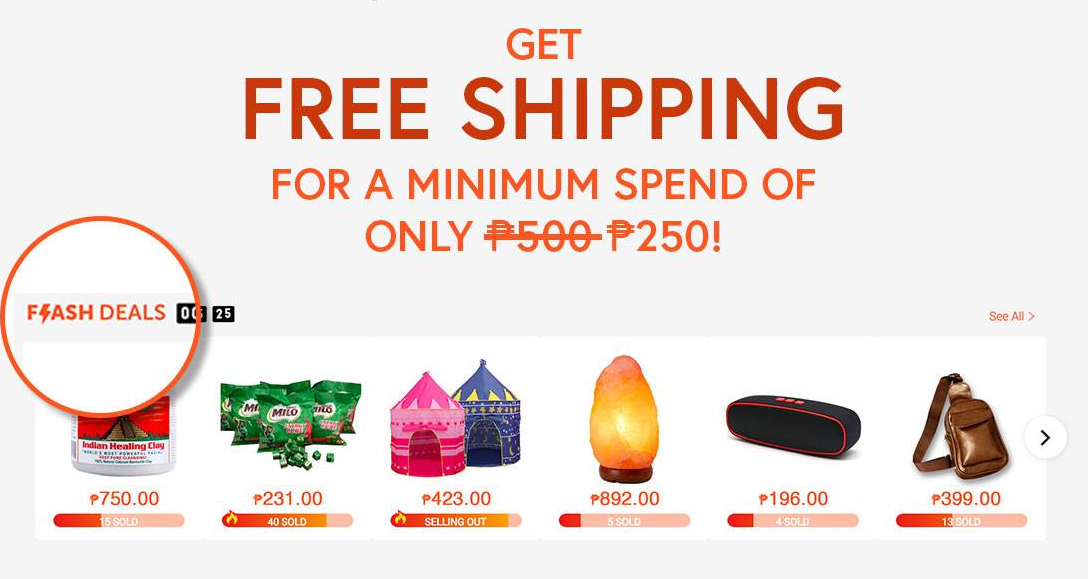
Few words get a shopper’s endorphins pumping more than “free shipping.” However, it often comes with the caveat of a minimum purchase amount. That’s great for the times you’re buying big-ticket items, but what happens when you just need to grab a few batteries and free shipping kicks in after $30? Well, you add a couple of things to the cart, of course. Well played, retailer. Well played.
Big yes, tiny no
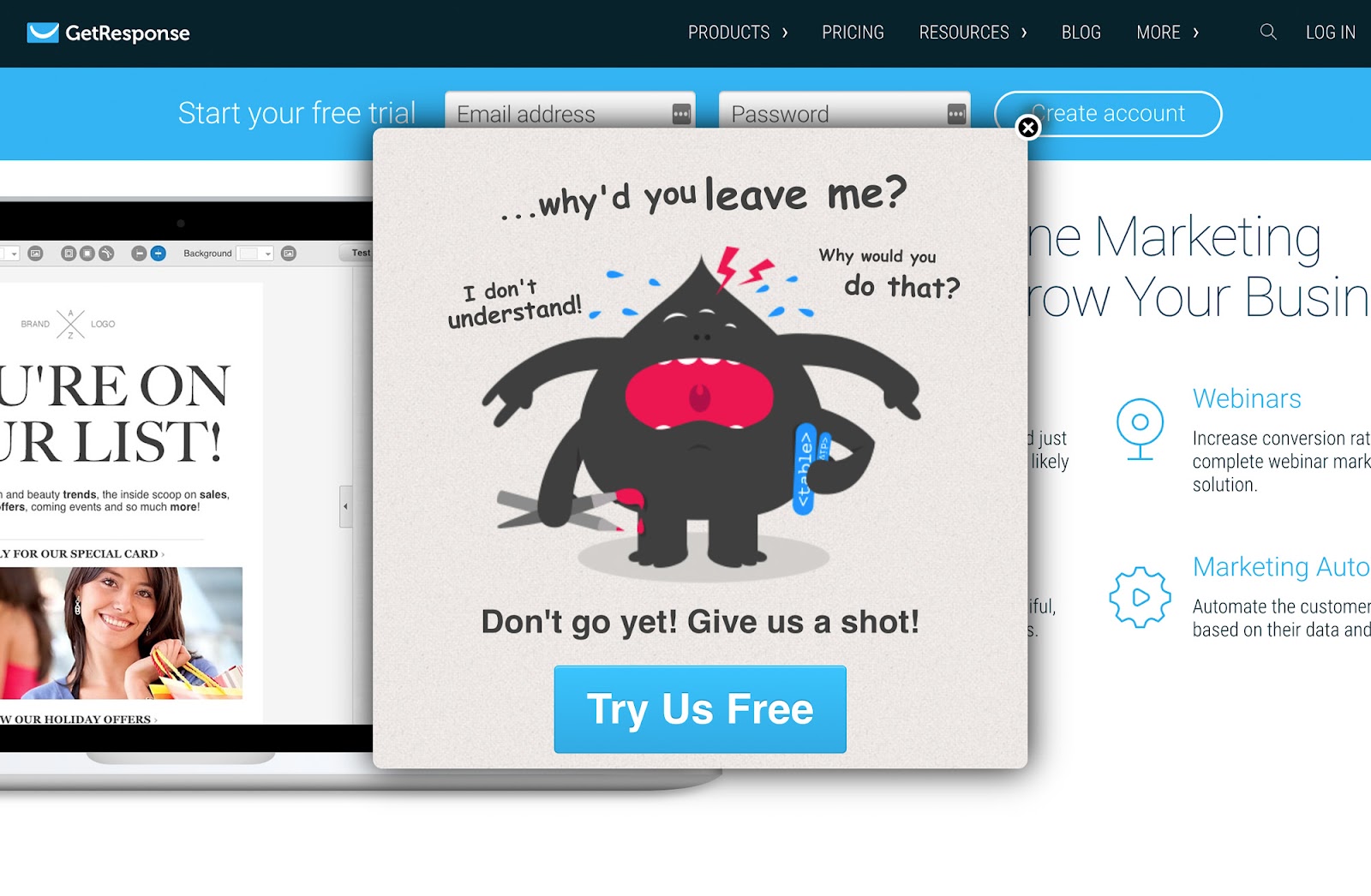
You’ve no doubt been browsing a site when suddenly a pop-up takes over your screen imploring you to take some action. It may be to sign up for the newsletter or to find out more about a special product. The process of saying yes to this call to action is always large and in charge, but often navigating away is often far more difficult utilizing tiny text or a hard to find “x” button. Bad news retailers: I love playing hide and seek.
The ol’ guilt trip
The first time I saw this marketing technique, I laughed out loud thinking it was one jokester company playing around. It’s absolutely become the norm, however. You’ve seen it before:
- Option one: Sign up to get alerts on incredible deals.
- Option two: No thanks. I hate saving money, I prefer to pay full price like a chump.
I’m exaggerating, of course, but it’s honestly not that far off. And though the language may be more subtle, they’ll often achieve the desired effect of making us doubt a decision not to pursue an offer or action.
The “email for deals” trade

“Sure, you can check out the pretty decent deals on our main site. But do you want to really save and get those VIP level super-deals? Just give us your email and you’ll gain access to the oh-my-goodness-how-are-these-prices-even-real deals those other plebs wish they had. This is totally about you getting super-secret deals, by the way. And not at all about us getting your email for future marketing purposes. Scout’s honor.”
The impossible-to-cancel subscription
There are two things e-commerce sites will assure you about subscriptions, memberships, and recurring charges. They’re easy to cancel, and you can do so at any time. Some companies stay true to this claim. Others, however, are full of you-know-what when making that claim. They know if they make the process convoluted enough, some customers will give up, at least temporarily. It’s a good idea to check past customer feedback for complaints about difficulty canceling.
Everybody else is doing it!
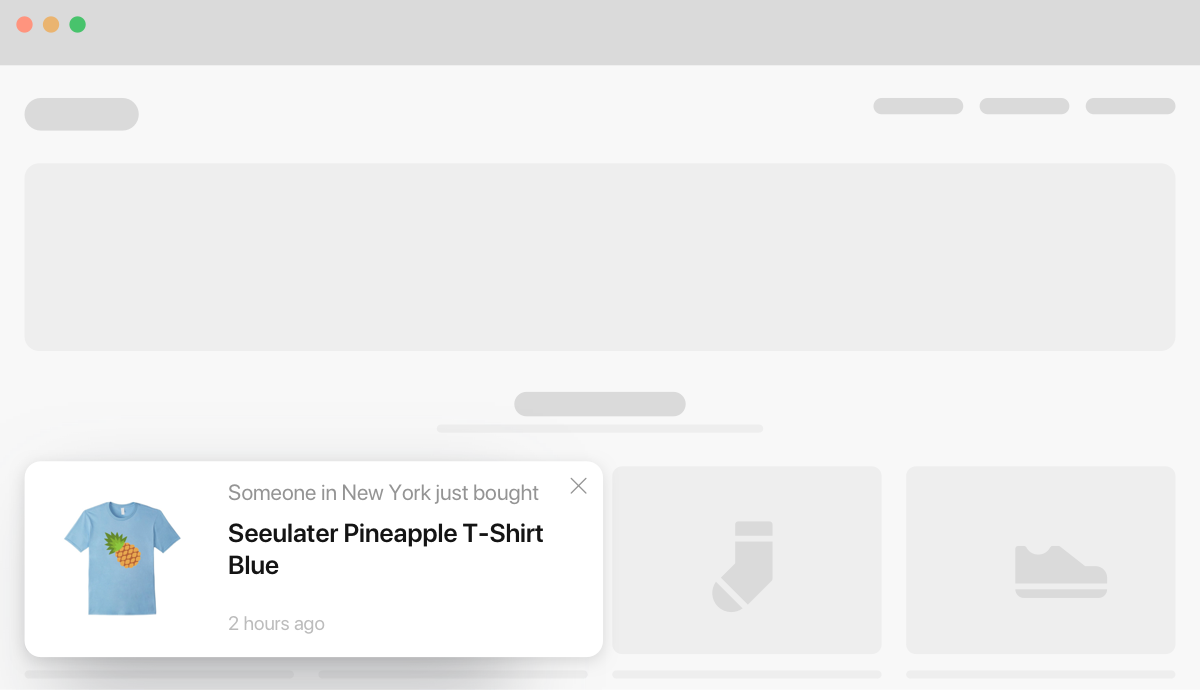
The testimonial is a great way for prospective customers to discover what positive things they can expect from a seller. It’s also a well-earned bit of marketing for the company–when they’re real, that is. Unfortunately, online retailers, in particular, can easily just make up glowing reviews for their product or service. Your best bet is to use external review platforms like Yelp.
Perhaps an even more effective marketing trick than the testimonial is the “just purchased” pop-up. “Suzy in Cincinnati just bought a pair of leggings! Joey in Jacksonville just purchased a pair of pants!” Well, if Suzy, Joey, and these 50 other people are buying pants between 5:15 and 5:30 in the morning, who am I to say no to these killer deals, ammarite?
The unavoidable upsell
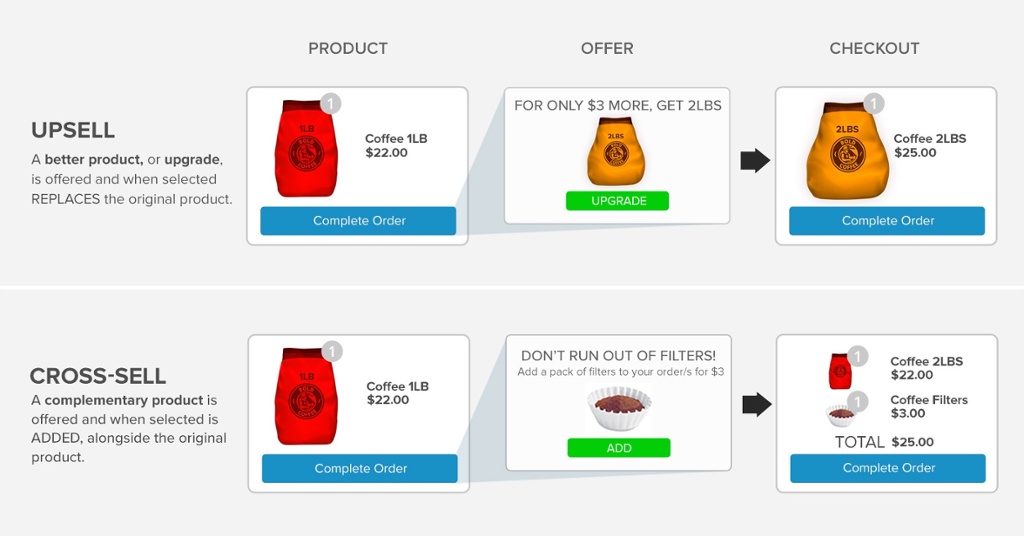
We're not saying there's anything nefarious about upselling. It's a core tenet of marketing: "Oh, so you like this? You might like this even more!" Sometimes, you absolutely may end up leaving with a better purchase thanks to this technique. The important thing is to make sure if you do respond to upsell attempts, it's actually a better decision than your intended purchase. For example, you go to your checkout after selecting a 1LB bag of coffee and you're greeted by a popup offering you a great deal on a 2LB bag. Theoretically, it's a no-brainer. However, if you know you'll barely get through 1LB before that coffee goes band, far less two, you're just throwing away those extra few bucks.
One thing to note—there's a difference between upselling and cross-selling. In upselling, you're offered an upgrade instead of your original selection. Cross-selling offers a complementary product to go along with your selection. The same logic should apply. "Okay, that makes sense, but does it makes sense for me right now?" Many of us have gone in planning to spend $25 and then, thanks to a well-placed cross-sell, left spending $70. That's not necessarily a bad thing. Just ensure the extra purchase isn't simply made because it's there.
Get great deals, but don’t be forced into one
Listen, we’re certainly not against marketing. Clearly, we market Ting Internet in order for people to find out about us and what we do. What we’re not fans of is using trickery or pressure to sell a product. Our advice? Keep a note of that product you actually planned to buy or was a great find. Then, unless you already know it’s the deal of the century, shop around a bit. Trust us, it’ll almost certainly still be there if you decide to return ten minutes later. And don’t forget to look out for last-minute fees that may completely negate the value of the original deal.
At Ting Internet, we’ve forgone marketing tricks in favor of clear and honest communication. We offer incredibly fast and reliable fiber internet at a fair price, and we’ve backed it up with top-rated customer support. So your entire household can stream, game, download and shop simultaneously, without having to worry about dropouts or slowed speeds. Plus anytime you need some assistance, we'll be there to help. See if Ting Internet is in your town.
.png?length=710&name=Blog%20banners%20(20).png)
.png?length=710&name=Blog%20banners%20(19).png)
.png?length=710&name=SMB%20Blog%20banner%20(5).png)